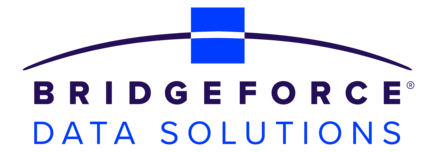The latest CFPB Supervisory Highlights (Winter 2024, Issue 37) outlines key findings related to deposits, furnishing, and short-term lending from examinations conducted from January 1, 2024, to October 1, 2024. For this blog, we wanted to share the significant exam findings regarding furnishers and their compliance with the Fair Credit Reporting Act (FCRA) and Regulation V. The report highlights deficiencies in how furnishers handle disputes, maintain accuracy, and respond to identity theft concerns.
Importance of Oversight of Service Providers
This edition of the CFPB’s Supervisory Highlights underscores the importance of financial institutions maintaining awareness of their service providers’ activities. The CFPB’s examinations now include not only institutions but also their service providers, such as core processors, debit network operators, and merchant partners.
While the institutions themselves may not be directly accused of unfair practices due to their service providers’ actions, the findings highlight the need for active oversight and management of these relationships. This ensures compliance with regulatory requirements and mitigates risks to both institutions and consumers.
Widespread Issues with Dispute Handling
Examiners uncovered significant shortcomings in furnishers’ management of disputes, particularly regarding indirect disputes reported through Consumer Reporting Companies (CRCs). This included:
Inadequate Investigations: Many furnishers relied heavily on automated systems that only checked their own records, failing to conduct comprehensive investigations. This approach often resulted in inaccurate information being verified and reported.
Neglecting Debt Collectors’ Client Data: Even when debt collections furnishers had access to creditor or their client records relevant to disputes, they failed to utilize this information. In some cases, disputes were referred back to clients without follow-up, leading to erroneous deletions or unresolved inaccuracies.
Delays in Resolution: Furnishers often did not meet the required timeframes (typically 30 days) for resolving disputes, prolonging consumer harm.
Issues with Ensuring the Accuracy and Integrity of Information furnished
The CFPB Supervisory Highlights identified significant failures in furnishers’ obligations to maintain written policies and procedures that ensure the accuracy and integrity of information furnished to Consumer Reporting Companies (CRCs). Key findings include:
Lack of Internal Policies: Furnishers relied on external procedures for technical file submissions but lacked comprehensive internal guidelines for meeting FCRA and Regulation V requirements. This led to systemic errors, such as reporting loans discharged in bankruptcy, inaccurate loan durations, and mismatched personal information.
Failure to Identify and Correct Errors: Furnishers did not adequately address issues flagged by CRCs, such as rejected files or mismatched consumer data. These deficiencies caused long-standing inaccuracies and delayed remediation.
Sector-Specific Failures:
- Student Loan Furnishers: Errors included misreported bankruptcy discharges and inaccurate loan terms.
- Installment Loan Furnishers: Weak internal controls led to erroneous associations of data with unrelated consumers.
- Credit Card Furnishers: Inadequate policies allowed disputes and inaccuracies to persist for over a year.
Identity Theft Block Requests
The report also highlighted failures by furnishers to respond adequately to identity theft block notifications from CRCs. Some furnishers lacked reasonable procedures to address these requests, leading to repeated furnishing of information flagged as fraudulent. This not only violated FCRA requirements but also caused ongoing harm to affected consumers.
Consumer Harm and Impact
The report notes that the deficiencies identified in dispute handling and accuracy practices led to significant harm for consumers, which included:
Ongoing Inaccuracies: Consumers faced prolonged reporting of incorrect information, including debts discharged in bankruptcy or accounts inaccurately marked as delinquent.
Delayed Resolutions: Mishandled disputes caused financial and emotional strain, with consumers unable to resolve issues promptly.
Erroneous Deletions: In some cases, tradelines were deleted improperly due to furnishers’ inadequate verification processes.
Remediation and Improvements
In response to these findings, furnishers are taking corrective actions to address the highlighted issues:
Strengthening Policies: Furnishers are implementing comprehensive written procedures to comply with FCRA and Regulation V requirements.
Enhancing Automated Systems: Automated dispute systems are being revised to include external data sources and third-party records to ensure more thorough investigations.
Improving Oversight: Furnishers are adopting stronger quality assurance measures to prevent systemic errors and ensure accurate reporting.
Conclusion
The CFPB’s Supervisory Highlights report emphasizes the critical importance of compliance with FCRA and Regulation V to ensure accurate and fair reporting. Accurate furnishing practices and robust dispute resolution mechanisms are essential to maintaining consumer trust and preventing harm.
To support this, Bridgeforce Data Solutions, a leading fintech, offers the Data Quality Scanner, an end-to-end accuracy solution for credit reporting and disputes. The Data Quality Scanner is an automated, low-cost, low-IT diagnostic solution with two modules: Furnishing and Disputes.
The Furnishing Module assesses data quality before or after furnishing for 100% of furnished data, while the Disputes Module identifies data issues in credit bureau disputes, how credit bureaus transform furnished data, and how well dispute agents resolve data quality issues. These unique features make the Data Quality Scanner a powerful solution for the 50+ financial institutions that actively use it, including top banks, credit unions, fintech lenders, and servicers, helping them effectively mitigate the issues highlighted in CFPB’s most recent report.
Schedule a demo with us today if you’d like to learn more about how the Data Quality Scanner can support your FCRA and Regulation V compliance efforts.



